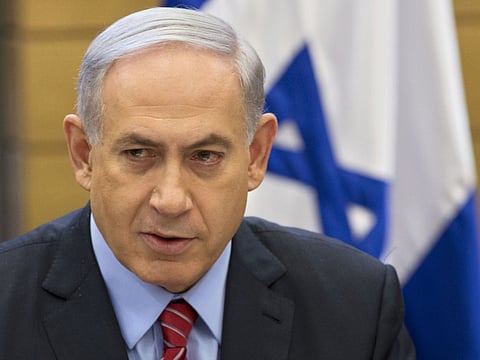Tricky times ahead for US-Israel ties
Obama still grappling with his dilemma over Netanyahu’s visit

All eyes are now focused on the upcoming fortnight, awaiting the much-promised address to the joint-session of the US Congress by the defiant Israeli Prime Minister, Benjamin Netanyahu, which is likely to turn matters sour between Israel and the US. This will most likely be the case should Netanyahu retain the Israeli premiership after the elections on March 17.
However, all this depends on what happens in the next few days preceding the national elections and whether Netanyahu and his short-sighted supporters maintain their aggressive positions. These include the continued rejection of Palestinian ambition to gain statehood, as well as the participation of the US alongside the four permanent members of the United Nations Security Council in critical negotiations with Iran over its nuclear ambitions — an issue that is troublesome to Israel, also believed to have nuclear ambitions as well, but remains unchallenged by key western nations.
Official and unofficial American supporters of Israel and the Israeli public remain seriously divided over the arrogant and unyielding performance of Netanyahu ahead of the Israeli elections and the simultaneous negotiations with Iran. A significant American warning came this week from Martin Indyk, a two-term ambassador to Israel and the current vice-president and director of the Foreign Policy Programme at the Brookings Institution, a think-tank in Washington. The former US special envoy to last year’s failed Palestinian-Israeli peace negotiations was also a participant last week in the annual Institute for National Security Studies (INSS) conference in Tel Aviv.
He warned at the INSS conference, according to the Jerusalem Post, that if the Israeli government emerges after the election and does not launch a diplomatic initiative or opposes a Palestinian state, Israel will likely face a UN Security Council resolution proposed by all permanent members designed to “lay out the principles of a two-state solution”. US Secretary of State John Kerry is said to be working on such a project at this time. Indyk, who did little to hide his position that Netanyahu was responsible for the breakdown of the peace talks, underlined Washington’s concern that the situation on the ground was reaching a boiling point, something that had been exacerbated by Israel’s withholding the transfer of tax funds to the Palestinian National Authority so that it could pay salaries of the Palestinian civil servants.
“The way forward,” he continued, “begins with coordinating an initiative with the United States ... and then, looking to Egypt and Jordan and the resurrection of the Arab Peace Initiative”.
What may, however, tone down Israel’s anxiety about the Obama administration’s position is the appointment of a new secretary of defence, Ashton Carter, a longtime Pentagon aide. The Jerusalem Post described Carter as “an ardent supporter of Israel who has also enjoyed a close relationship with (Israeli) Defence Minister Moshe Ya’alon”.
Another American, who had immigrated to Israel and is now its ambassador in Washington, Ron Dermer, who reported, according to Politico Magazine, that congressional Democrats were “already suspicious of him, alleging that he has been undermining negotiations with Iran by distributing negative talking points” to Congressional offices. According to the New York Times, the White House chief-of-staff, Denis McDonough, among others, had initially resisted the appointment.
Paul Pillar, a longtime CIA analyst, wrote in the National Interest, that “the naming of Dermer is a statement that manipulation, with a hard-Right twist, of American politics is not just something that arises from time to time in US-Israeli relations but instead is the main aspect of the relationship”. He elaborated: “It also is a statement by Netanyahu that he isn’t bothered if the relationship is seen that way.”
Much as Obama seems angered by Netanyahu’s upcoming trip to Washington and addressing a joint session of Congress, days before the Israeli election, Israeli polls “across all ideological groups [show] a majority does not trust Obama to ensure that Iran does not achieve a nuclear weapon”, reported the Times of Israel. “Among undecided voters, the distrust is slightly deeper, with 17 per cent saying they trust Obama and 76 per cent saying they do not.”
But the Washington Post ran an interesting letter-to-the-editor from a reader who described himself as Jewish. He wrote: “Mr Netanyahu and his Likud Party have done considerable harm to Israel, to its international standing and even to the reputation of the Jewish people in general. Furthermore, his unseemly attempt to come pleading to Congress while wilfully dismissing President Obama plays into the hands of people who proclaim that Israel holds undue influence over the affairs of the US government.”
George S. Hishmeh is a Washington-based columnist. He can be contacted at ghishmeh@gulfnews.com
Sign up for the Daily Briefing
Get the latest news and updates straight to your inbox



